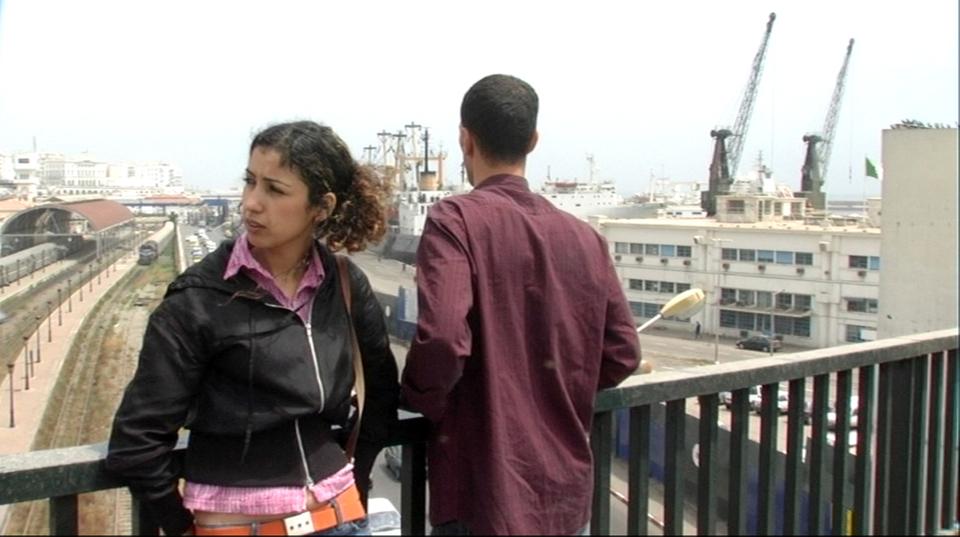
News
Pro-Palestine Encampment Represents First Major Test for Harvard President Alan Garber

News
Israeli PM Benjamin Netanyahu Condemns Antisemitism at U.S. Colleges Amid Encampment at Harvard

News
‘A Joke’: Nikole Hannah-Jones Says Harvard Should Spend More on Legacy of Slavery Initiative

News
Massachusetts ACLU Demands Harvard Reinstate PSC in Letter

News
LIVE UPDATES: Pro-Palestine Protesters Begin Encampment in Harvard Yard
Portrait Of An Artist: Tariq Teguia

Tariq Teguia recalls ending the last paper he wrote as a student with the words, “I want to make films.” In subsequent years, Teguia worked as a photographer and a teacher, but by the mid-’90s, he had found his way to directing. His first two feature films, 2006’s “Rome Rather Than You” and 2008’s “Inland,” have both garnered significant acclaim, the latter receiving awards and nominations at international film festivals. Both films focus on Teguia’s native Algeria. His third film, which is currently in the works, concerns Africa as well as the Middle East.
Teguia speaks French (the interview was conducted with a translator) and is the recipient of the 2012 McMillan-Stewart Fellowship in Distinguished Filmmaking, which Harvard’s Film Study Center awards yearly to a Francophone filmmaker hailing from Africa or of African descent. (Teguia’s films are not in French, however, but in Arabic.) On October 26 and 27, Teguia’s films were screened at the Harvard Film Archive.
The Harvard Crimson: You studied philosophy and visual art in Paris. How did your time in France influence your style of filmmaking?
Tariq Teguia: France is really the place where the theorizing of cinema began. Why I went to France was because of that theorizing of cinema.... But when it comes to films, it’s really a matter of undoing yourself or unmaking yourself. I studied film theory; I didn’t study filmmaking. So when it comes to [actual filmmaking], you have to forget yourself, forget what came before.
THC: You have made both feature-length films and short films. How does your process change when directing one as opposed to the other?
TT: Ultimately, very little. I work with a small crew, and we work with very little means. But we work with a lot of energy and desire, and I try to keep that sense of economy in all my films. And I’m working with people who are not really a part of the film industry, but who are friends, above all.
THC: Both your feature films address issues facing contemporary Algeria. Do you think Algeria will remain the focal point of your films?
TT: It’s true I’ve only made films about Algeria so far, but “Inland” is plugged into spaces beyond Algeria. It’s time for me to plug Algeria into larger networks...plugging Algeria into Africa as a whole, Africa as a continent. Now in the new film I’m enlarging the map, plugging Algeria into new places, into the Mediterranean, into Europe. But Algeria is always there. As to whether I’d make a film without Algeria at all? I don’t know about that. Maybe a Western; maybe I’ll make a Western here.
THC: What do you think are some of the central problems facing Algeria?
TT: Algeria’s problems are problems of underdevelopment, problems of the electoral process, the democratic process—basically, the problems that any country might be facing 50 years after independence. Every single colonized country has faced these problems.
THC: Are any of your projects rooted in real life experience?
TT: Yes, they come from experience before filming, experience before writing. In fact, it’s experience, then writing, then experience again, and then filming.
THC: In your opinion, what are the most integral differences between Francophone films and American films, Francophone directors and American directors?
TT: I am a Francophone director, but my films are not in French. If you were to think of the differences between American filmmakers and European filmmakers, there are many differences, but one that comes to mind is space. American filmmakers really draw from that large sense of geographical space. European filmmakers work with history, [Americans] work with space. And I’m working with both, because I’m making a film about the ghosts that haunt history.
Want to keep up with breaking news? Subscribe to our email newsletter.
